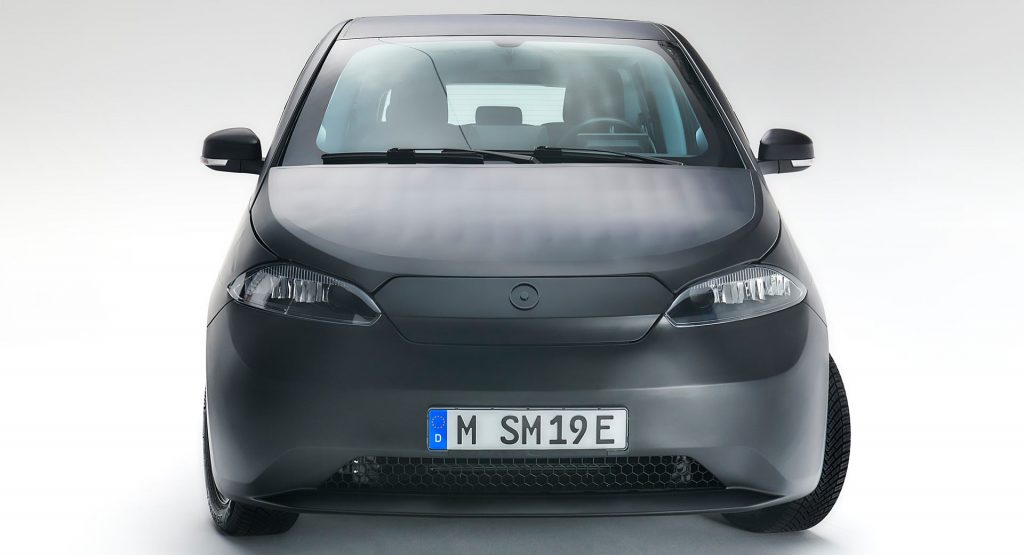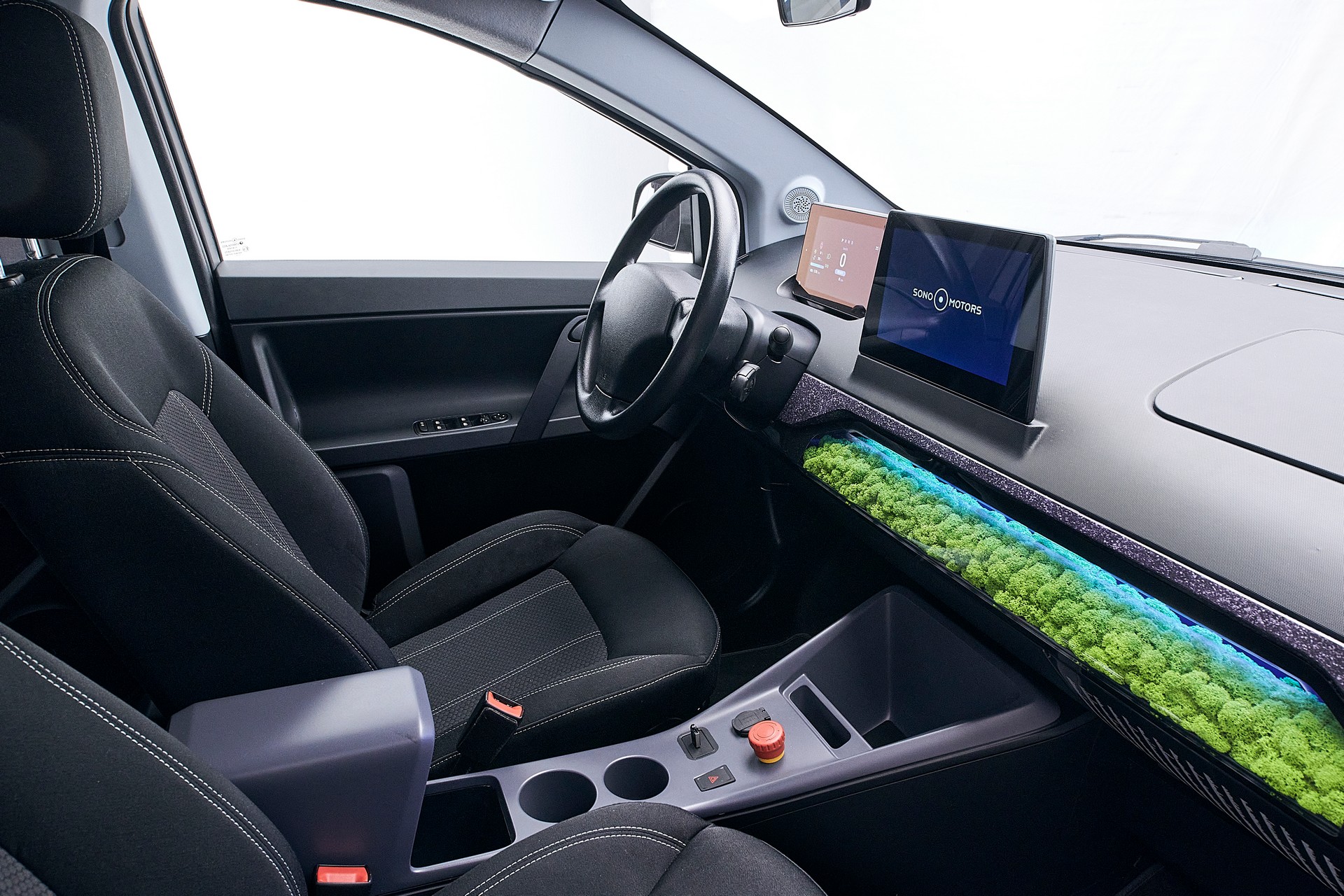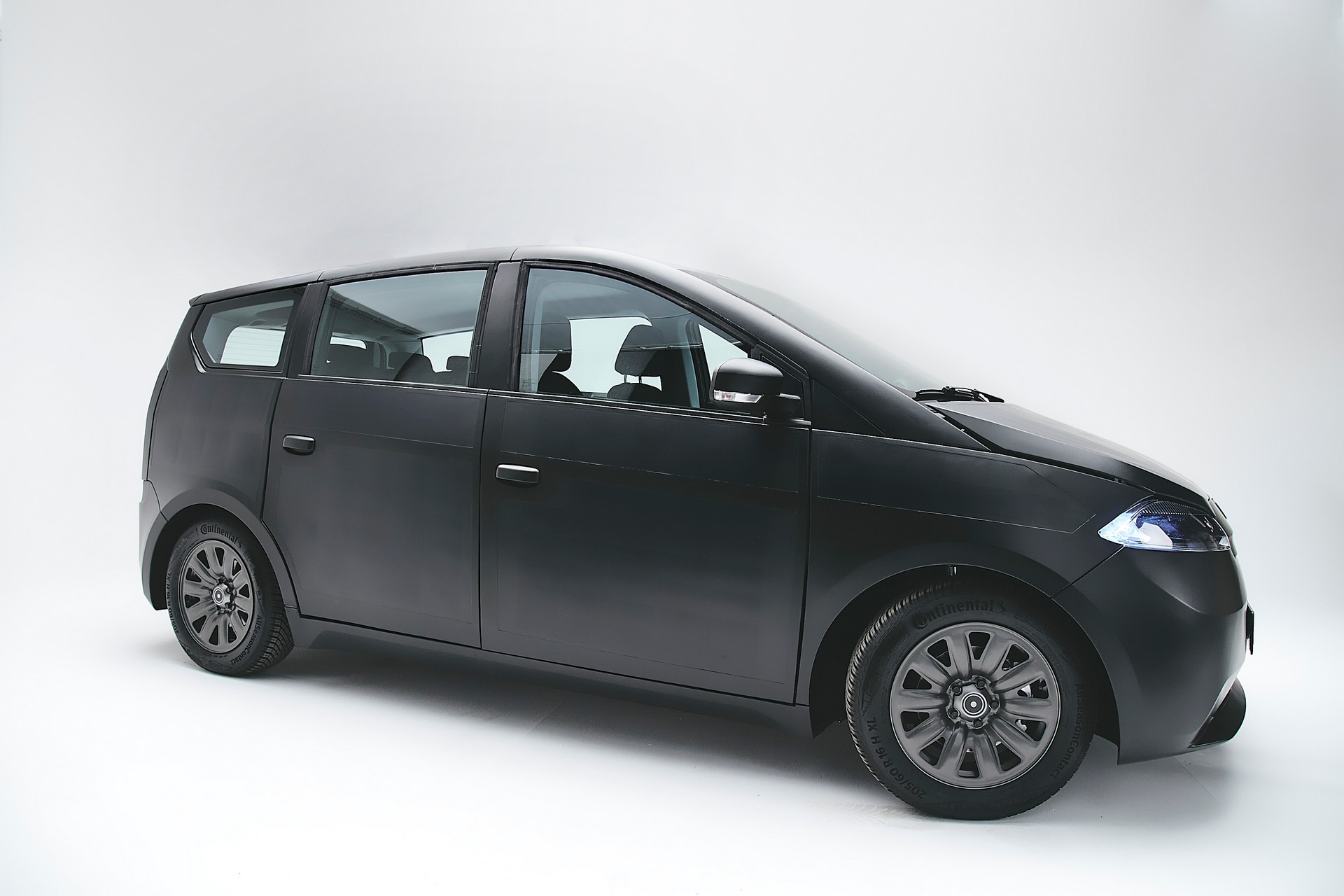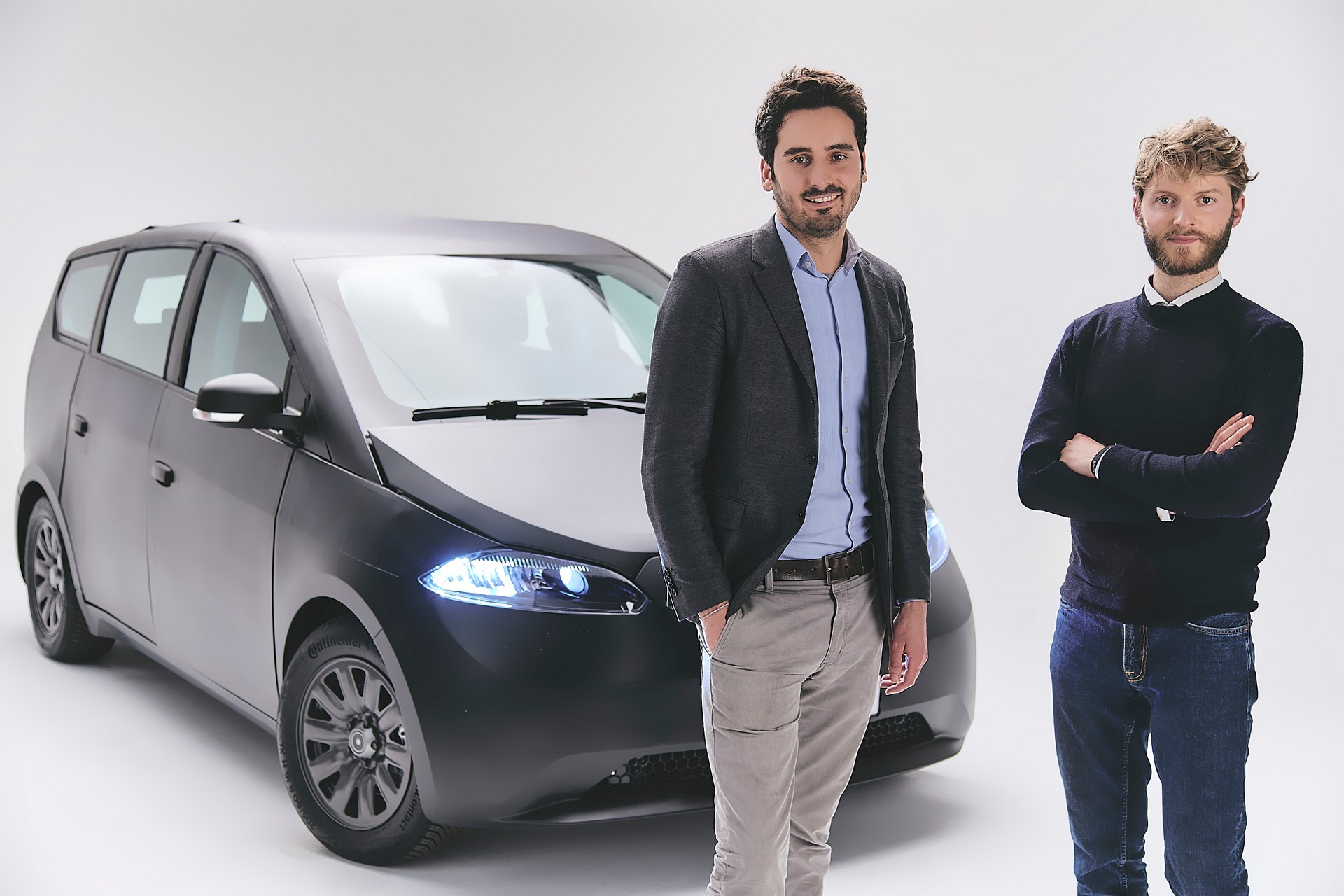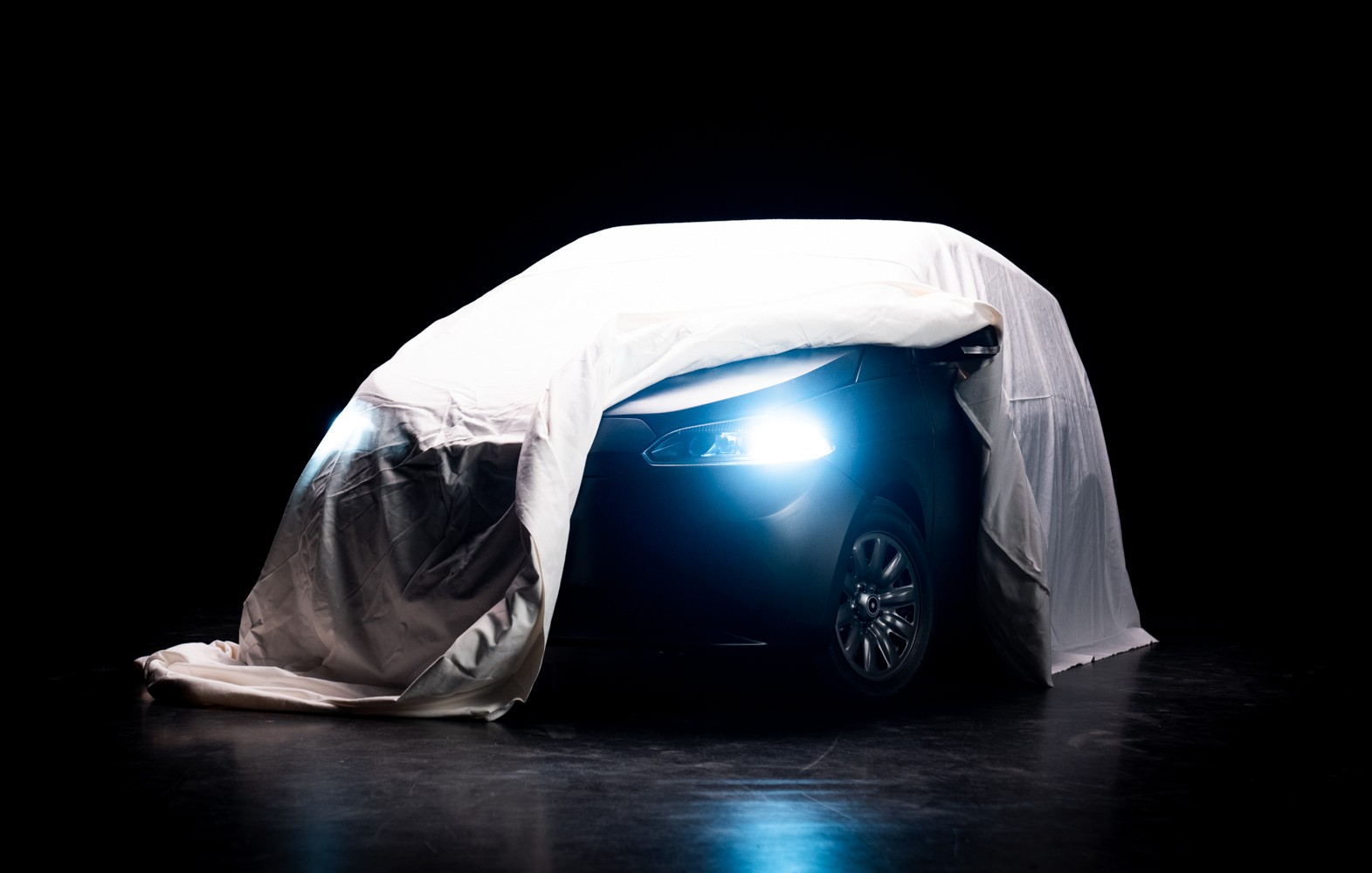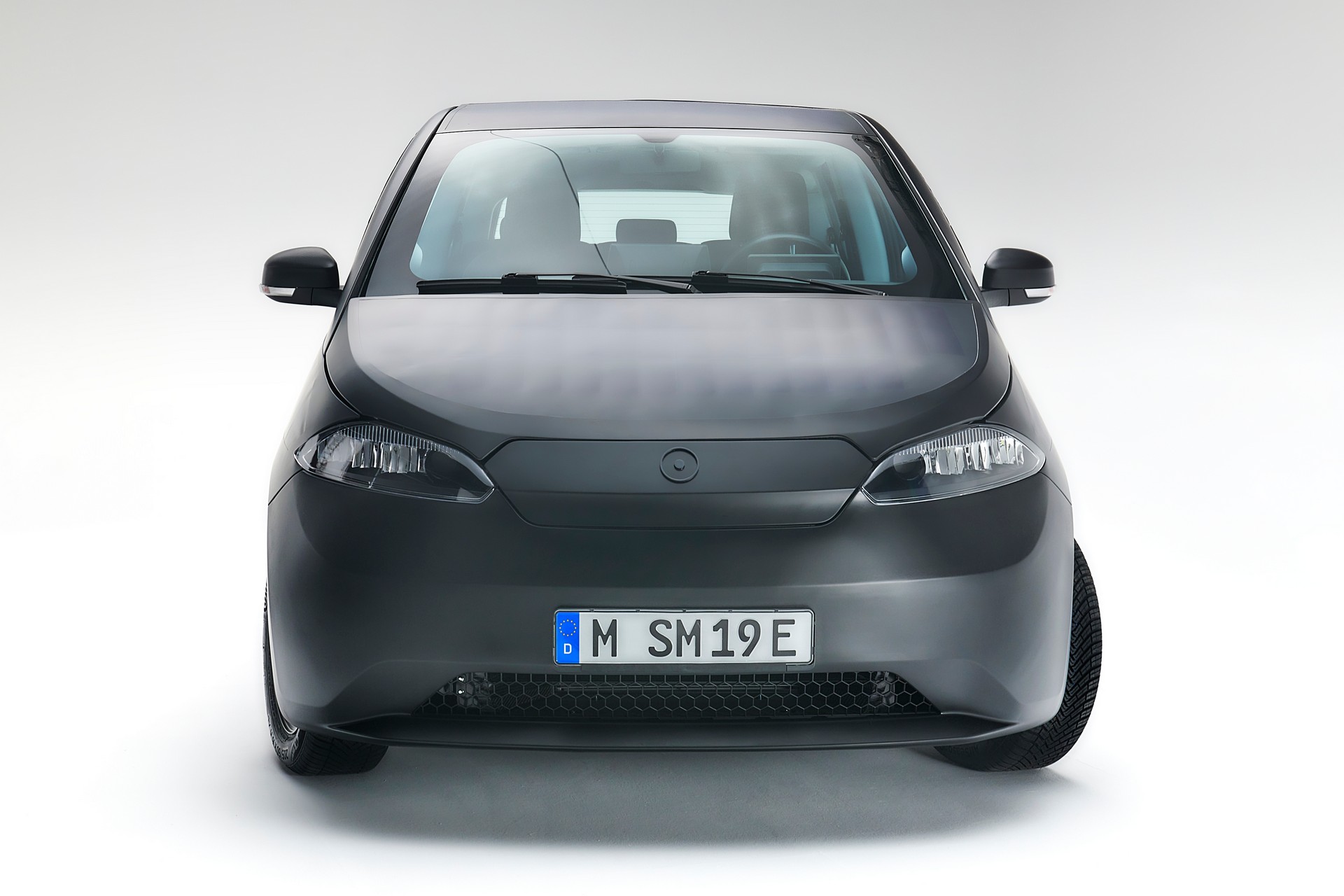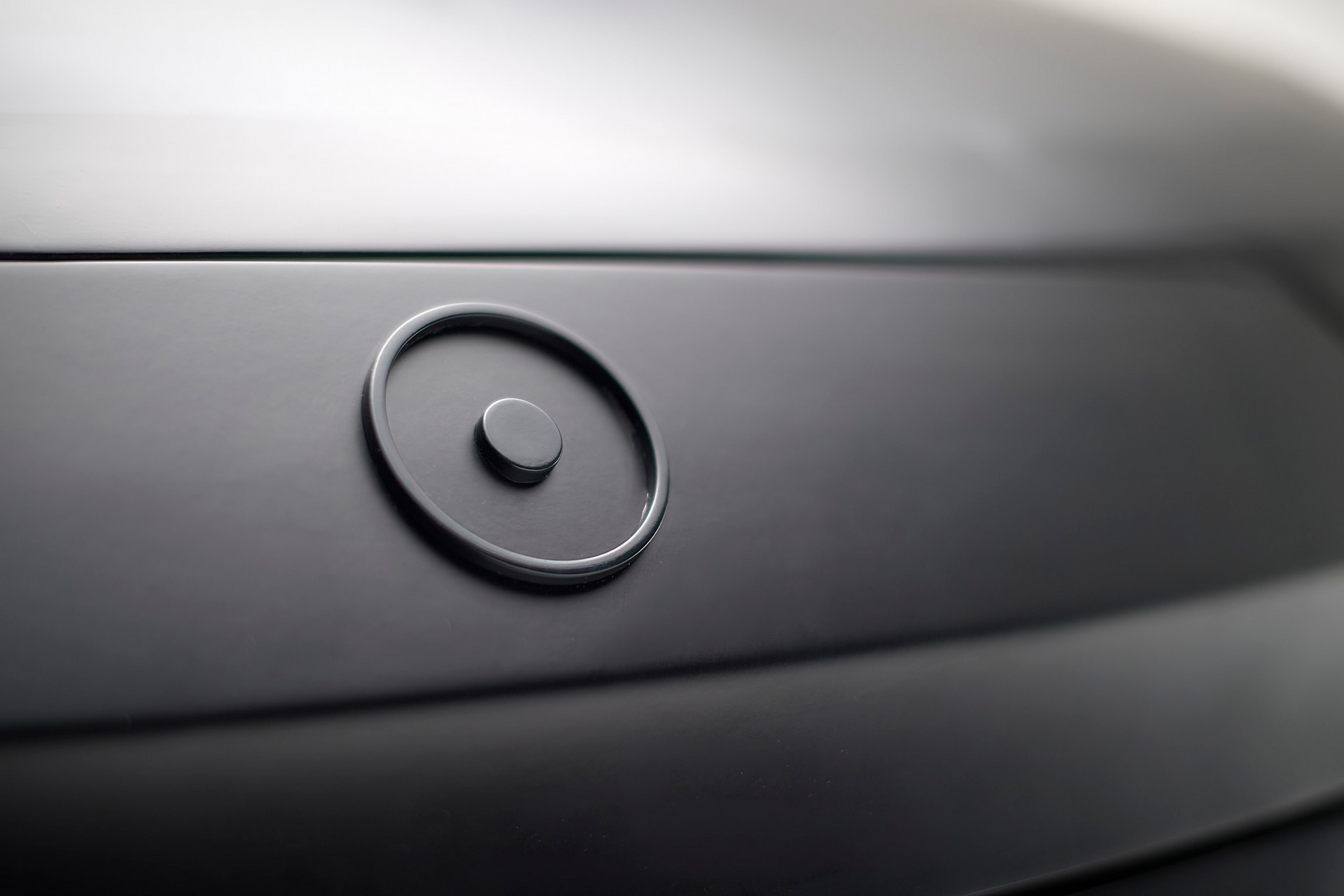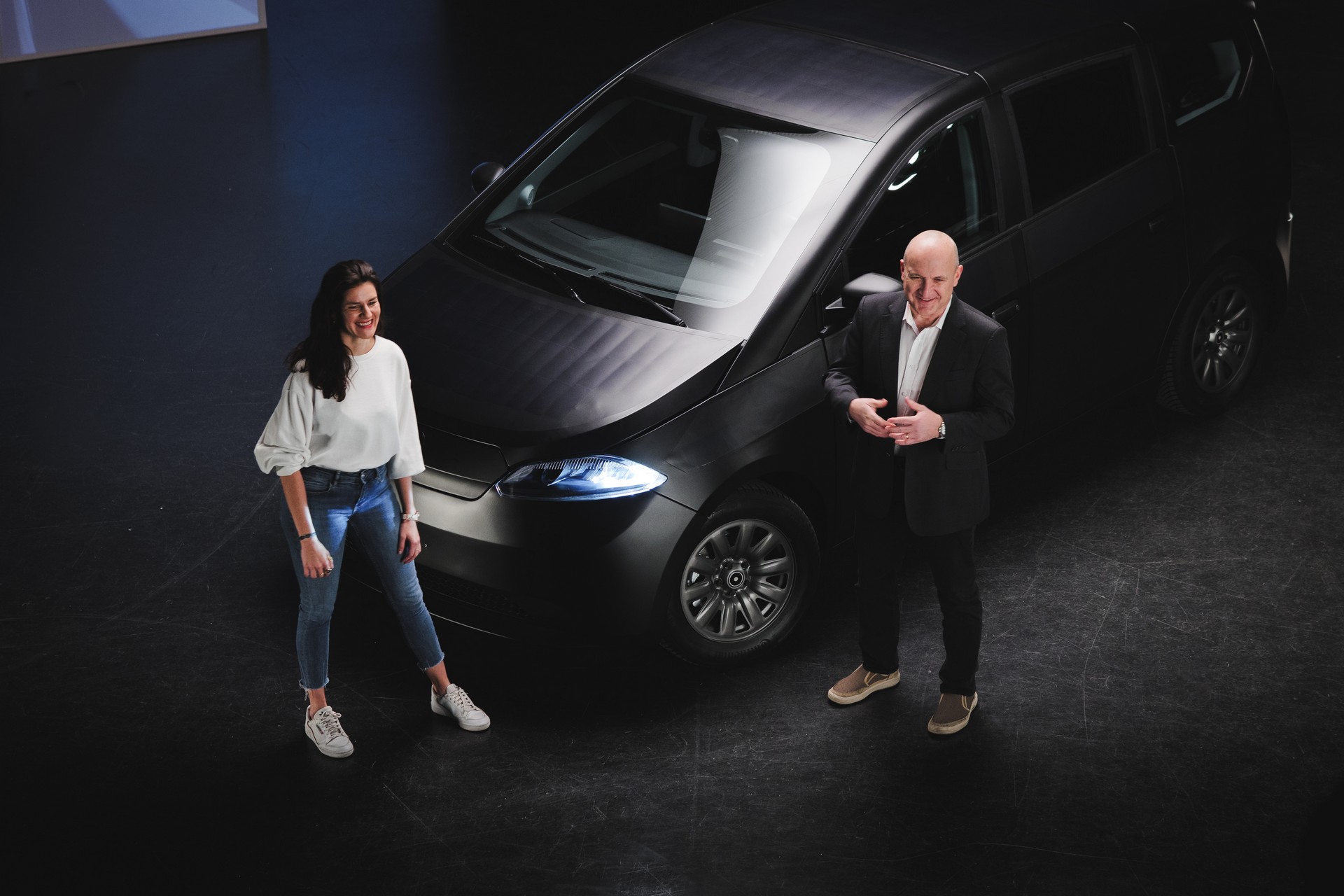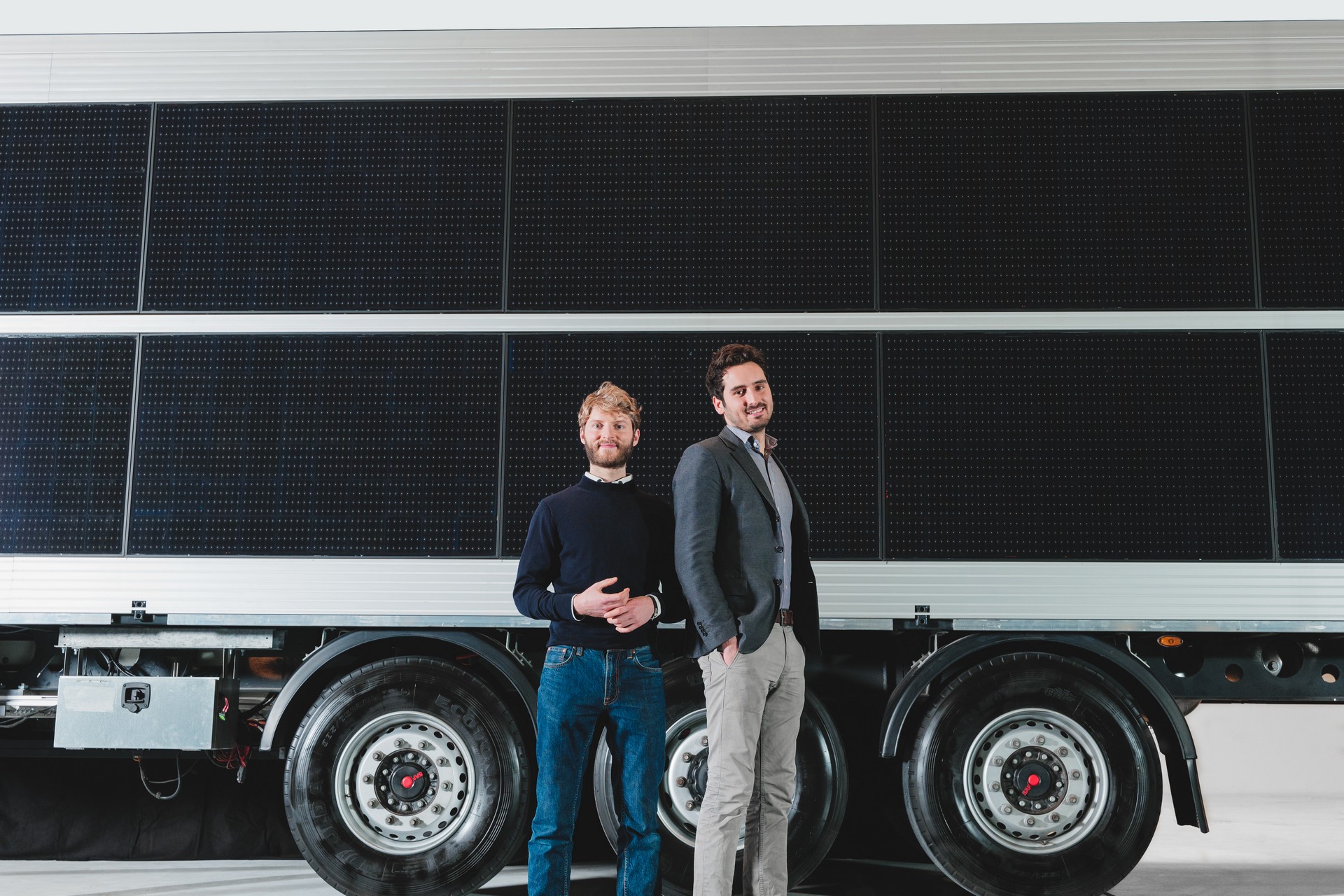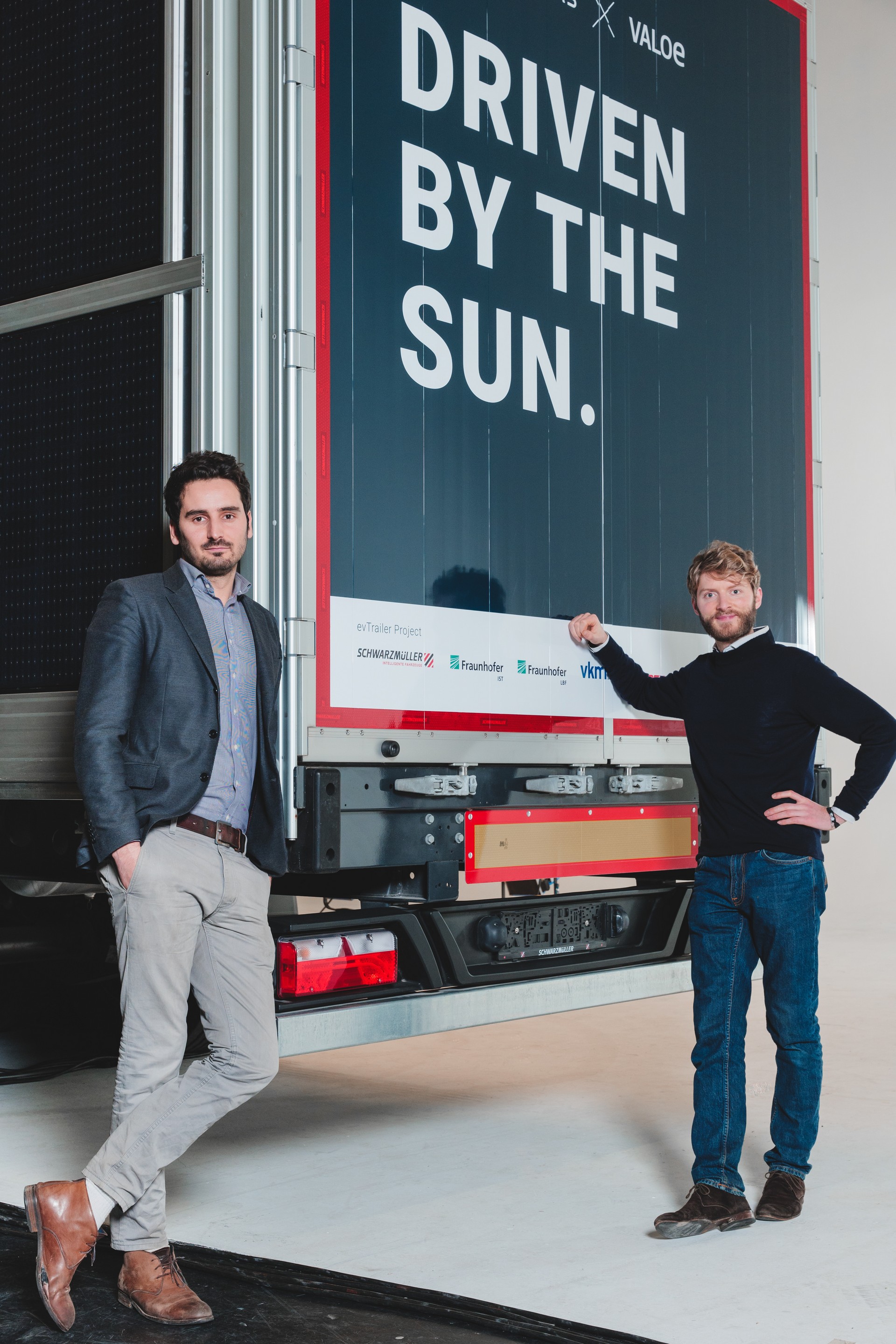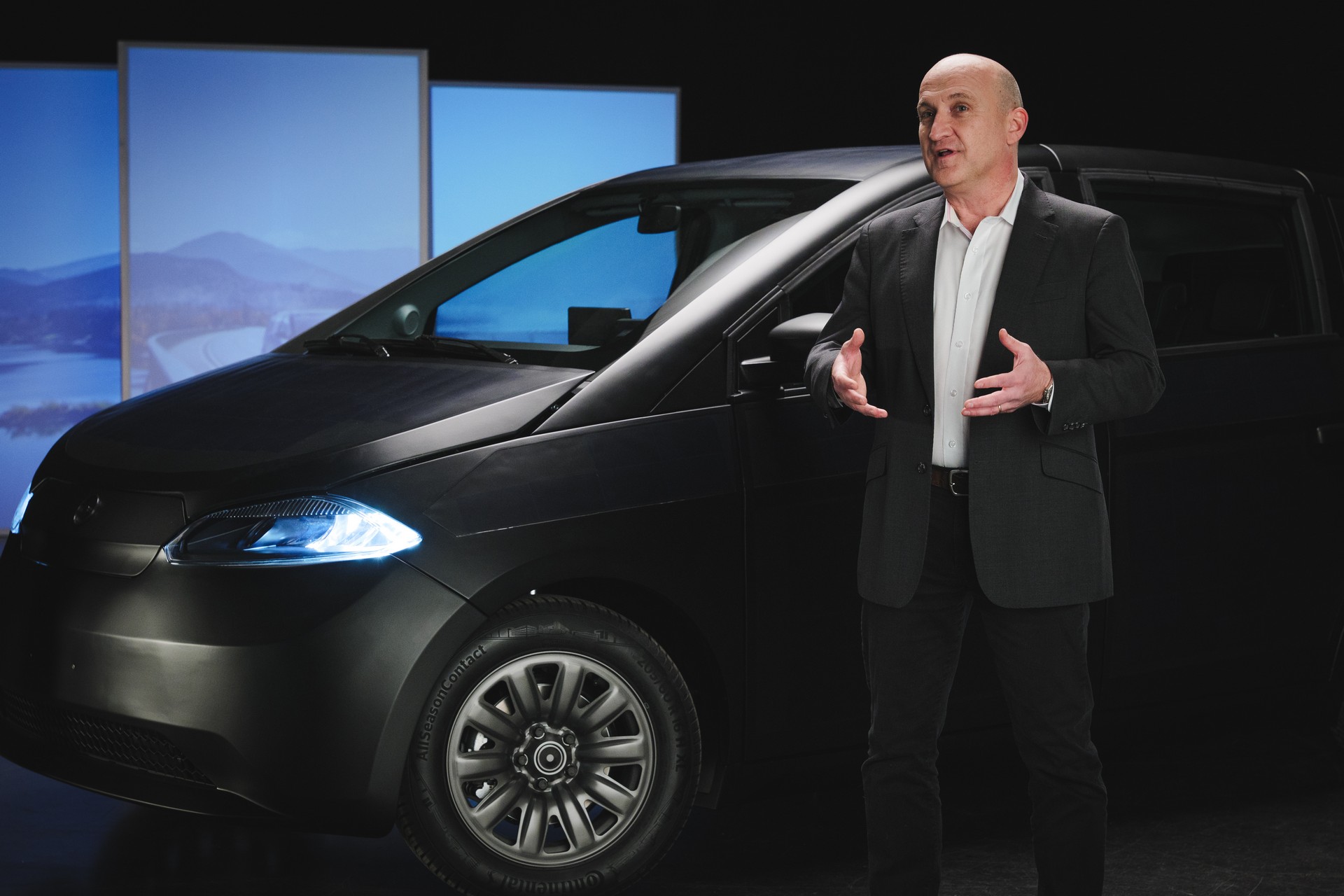Sono Motors has used CES to introduce their next-generation prototype for the Sion EV.
Looking far more refined than earlier prototypes, the latest model has been equipped with a number of components which will be found in the production model. This includes the chassis and electric motor.
However, the most notable change is the improved integration of the solar panels on the body. They no longer stick out like a sore thumb and are series-intent for production.
Also Read: Germany’s Sono Motors Crowdfunds $60 Million To Build Sion EV
Moving into the cabin, we can see an assortment of changes including a new infotainment system and a revised digital instrument cluster. One thing that hasn’t changed is the moss that grows in the dashboard, which is designed to filter the air and regulate humidity.
Putting the moss aside, Sono said they have taken a major step forward in regards to the infotainment system and vehicle app. The company didn’t go into too many specifics, but said we can expect remote access to the climate control system as well as live tracking of how much solar energy is being collected.
The interior is near-production and the Sion will have heated front seats, cruise control and a four-speaker audio system. We can also expect two USB-C ports and an ambient lighting system.
The Sion is slated to have a 35 kWh battery which powers an electric motor that develops 161 hp (120 kW / 163 PS) and 199 lb-ft (270 Nm) of torque. This will enable the car to travel 158 miles (255 km) in the WLTP cycle and hit speeds up to 87 mph (140 km/h).
Of course, the €25,500 ($30,796 / £22,674) EV is also equipped with solar panels which help to charge the vehicle throughout the day. The charge will vary depending on conditions, but the company has said Germans can expect to get up to 22 miles (35 km) of range daily thanks to the solar panels.
Besides showing the new Sion prototype, Sono unveiled a solar trailer. As the name suggests, it’s a semi trailer that has been decked out with solar panels. While the company didn’t say much about the trailer, they noted it underscores the potential use of their solar panels “across various mobility applications.”




